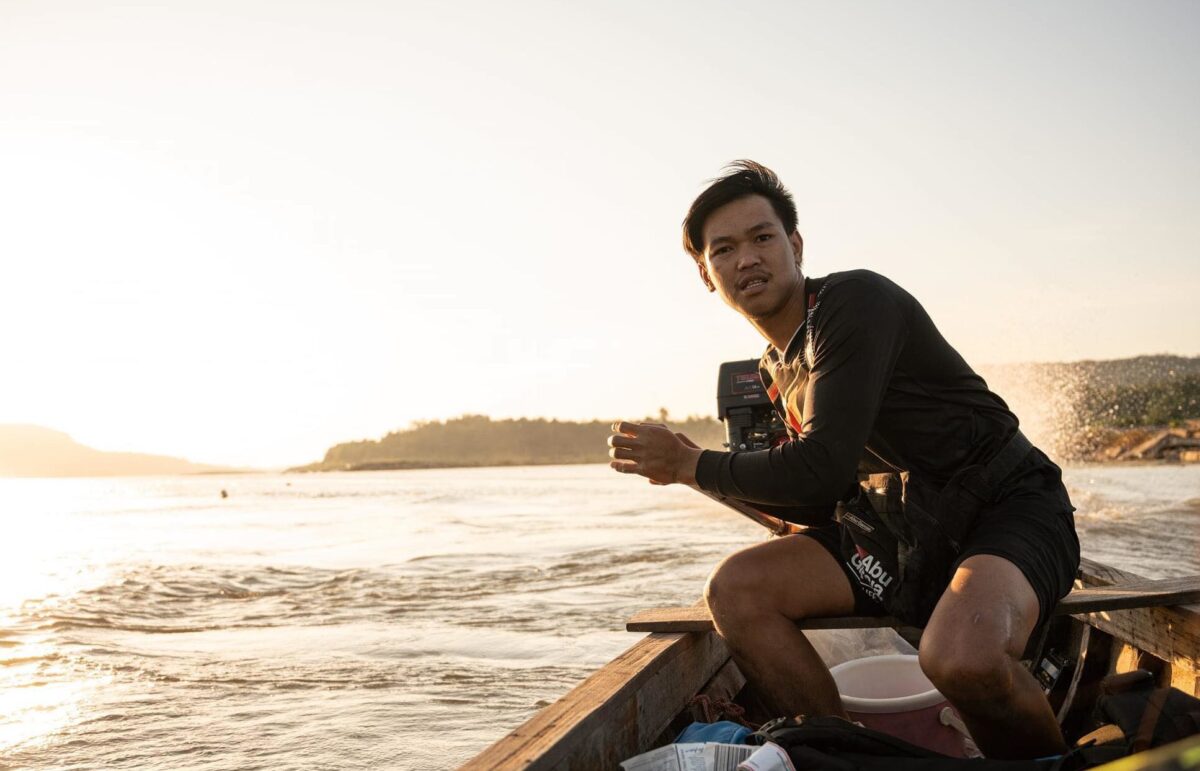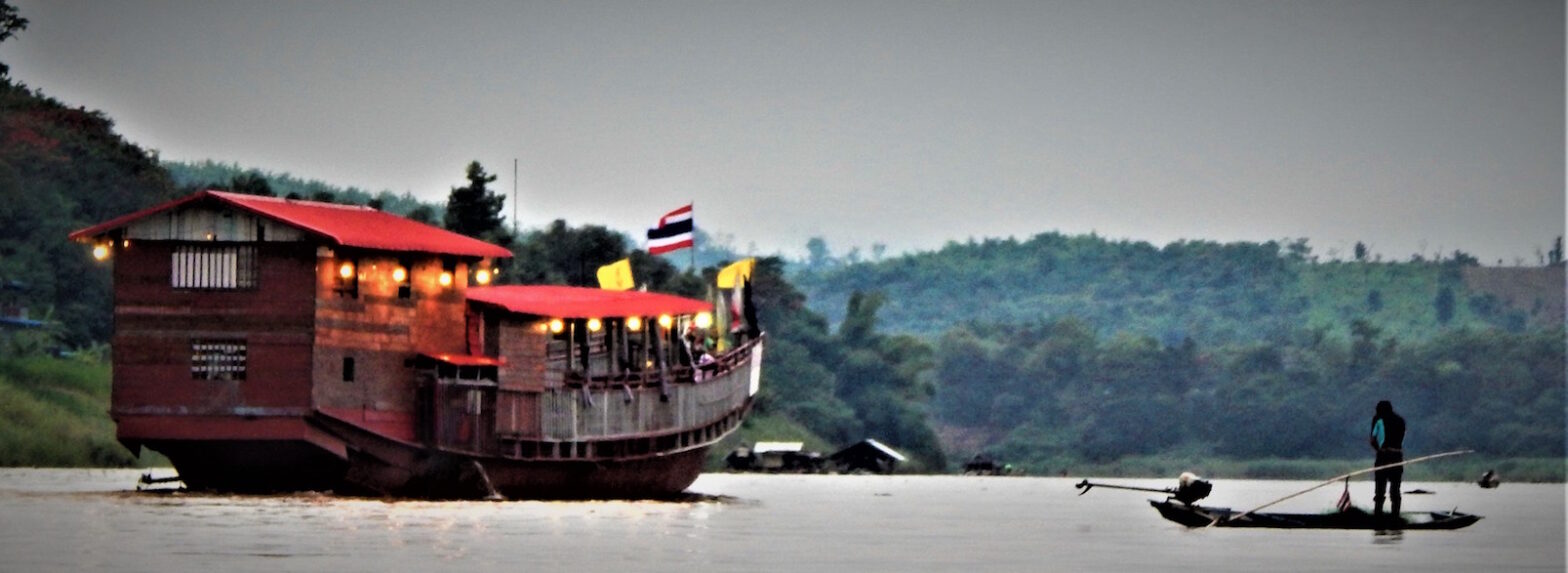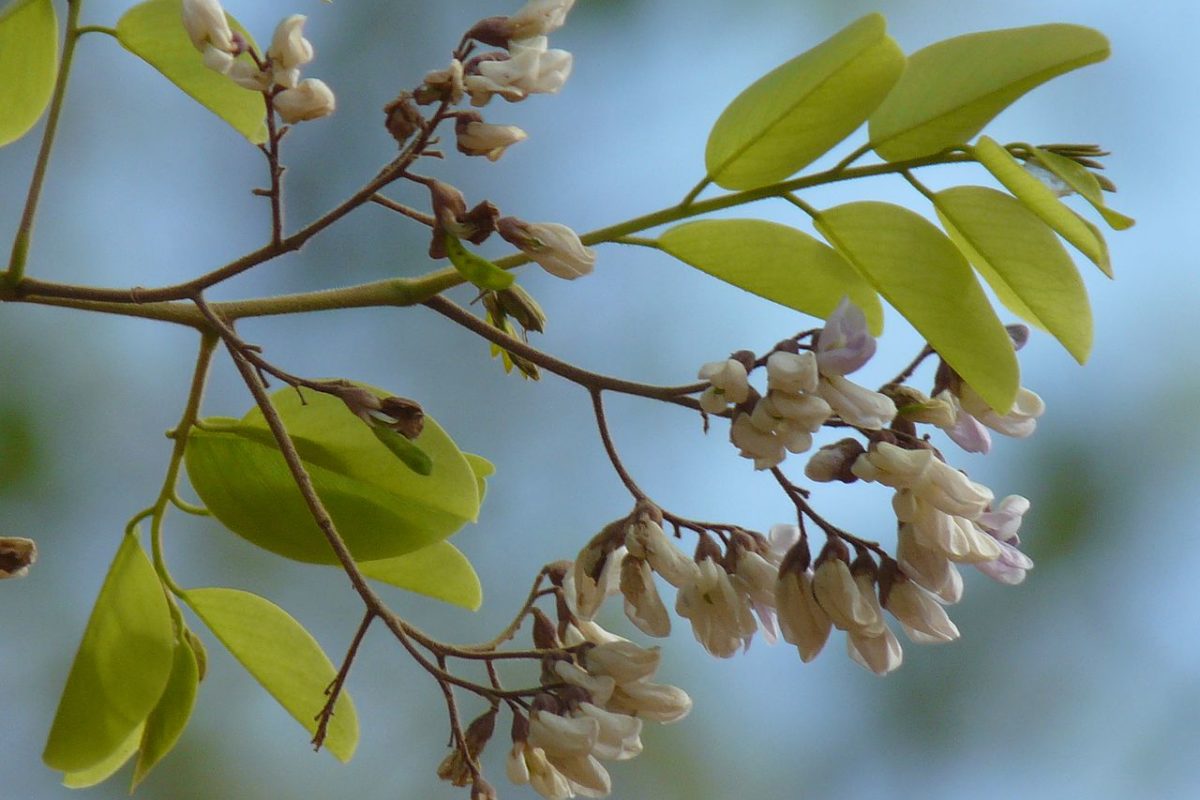People who once relied on the Mekong for their livelihood can no longer depend on it and are looking elsewhere to make a living.
Ban Tamui is a small village in Khong Chiam district in Thailand’s northeastern Ubon Ratchathani province, adjacent to the Mekong River and Thailand-Laos border.
Local residents have relied on the mighty river for their food and income for generations, especially through freshwater fisheries and riverbank farming. Though not wealthy, most of the locals say they don’t go hungry or fall into the poverty trap.
They have experienced the change in water flows, with water levels rising and falling regardless of the season, threatening the river’s ecology and the species that live in it.
The dry season in 2012 recorded a sharp rise in water levels overnight, flooding and damaging crops on the riverbank. Similar incidents were repeated in the following years. Most riverbank farmers eventually decided to quit because they couldn’t bear the losses.
On the other hand, declining fish catches have forced many local fishermen to quit fishing.
Research in 2016 conducted by local villagers and civil society groups found that at least eight types of fish had disappeared, as indicated by the record of local fish catches.
Twenty-seven became rare as local fishermen now hardly find them in their nets. Seventy-four have dwindled in number. The disappearance of fish means declining incomes for the fishermen and their families.
As their food sources obtained from nature have shrunk, Ban Tamui’s residents now must spend more buying food.
The same research found that purchasing food accounted for 61% of household food consumption, based on a survey of 80 households. Another 23% was food from nature. The rest was from household production and food exchanges with community members.
Local people link the loss of food and income to the upstream dams, which hold and release water without consulting the downstream communities. However, China has insisted that the change in water flows may be caused by multiple factors, including climate change and over-irrigation.
The dire situation has forced many people in Ban Tamui, including the young generation, to leave their homes for jobs in cities. Otherwise, they and their families would go hungry and be poor.
But not everyone can bear the hustling urban lives far from the Mekong River they have cherished. Some return to the village with the hope to establishing small businesses while seeking new opportunities from tourism ―many tourists now seek exotic experiences in new destinations.
While young people are looking toward tourism, the existing generations of fishermen and farmers may soon become extinct.
An independent documentary producer Warangkana Vorapoo and a citizen journalist Kampin Aksorn, also a resident of Ban Tamui, collaborated on the 14-minute documentary “the last generation fisher folk of Ban Tamui” to explain the current stage of Ban Tamui and its people.
About contributors
Warangkana Vorapoo is an independent documentary producer who has been covering issues relating to environment, public health, community development, education and children rights for more than three decades.
Kumpin Aksorn is a Mekong community-based citizen journalist. She is a regular contributor to the Citizen Journalists Program at Thai Public Broadcasting Service (Thai PBS) Channel.





